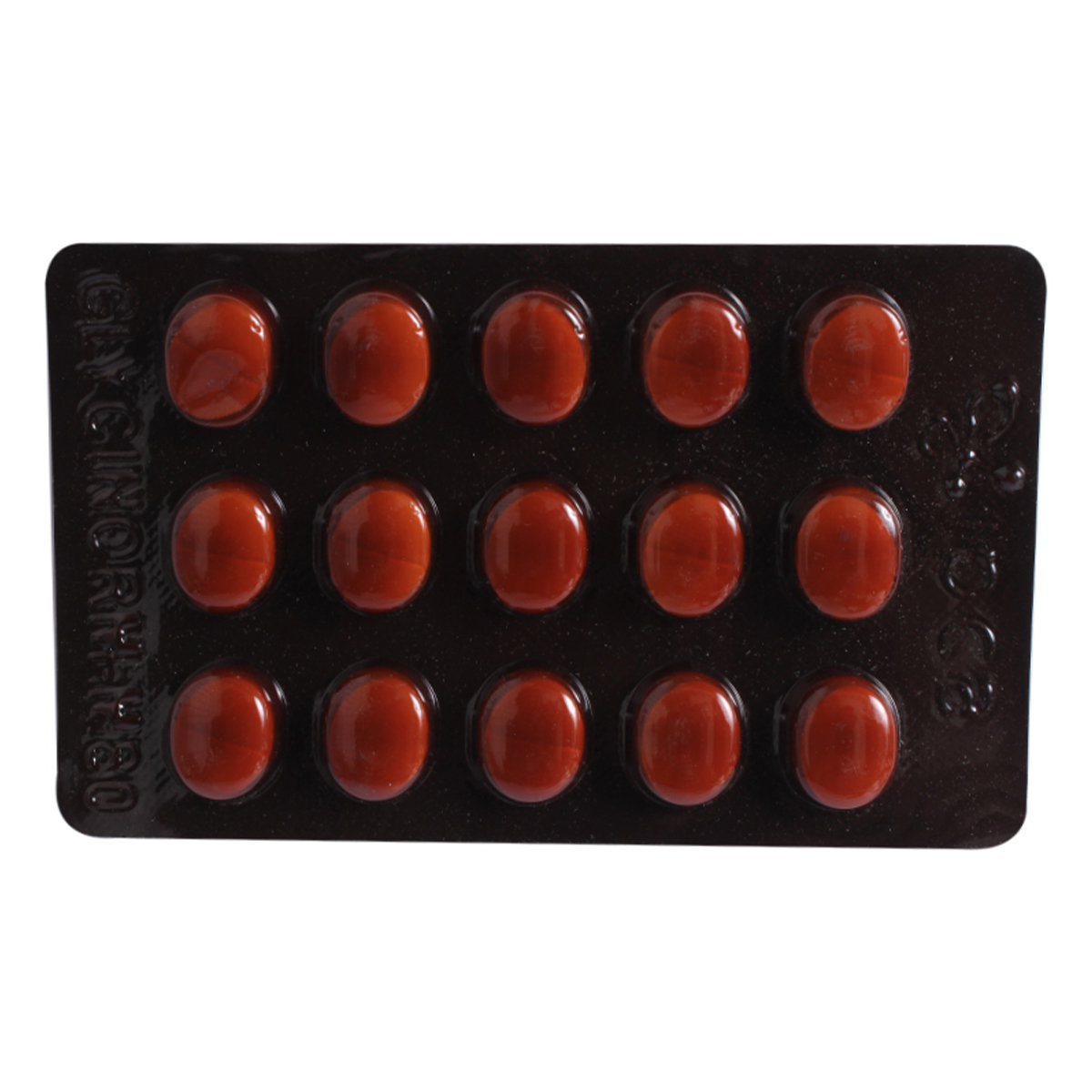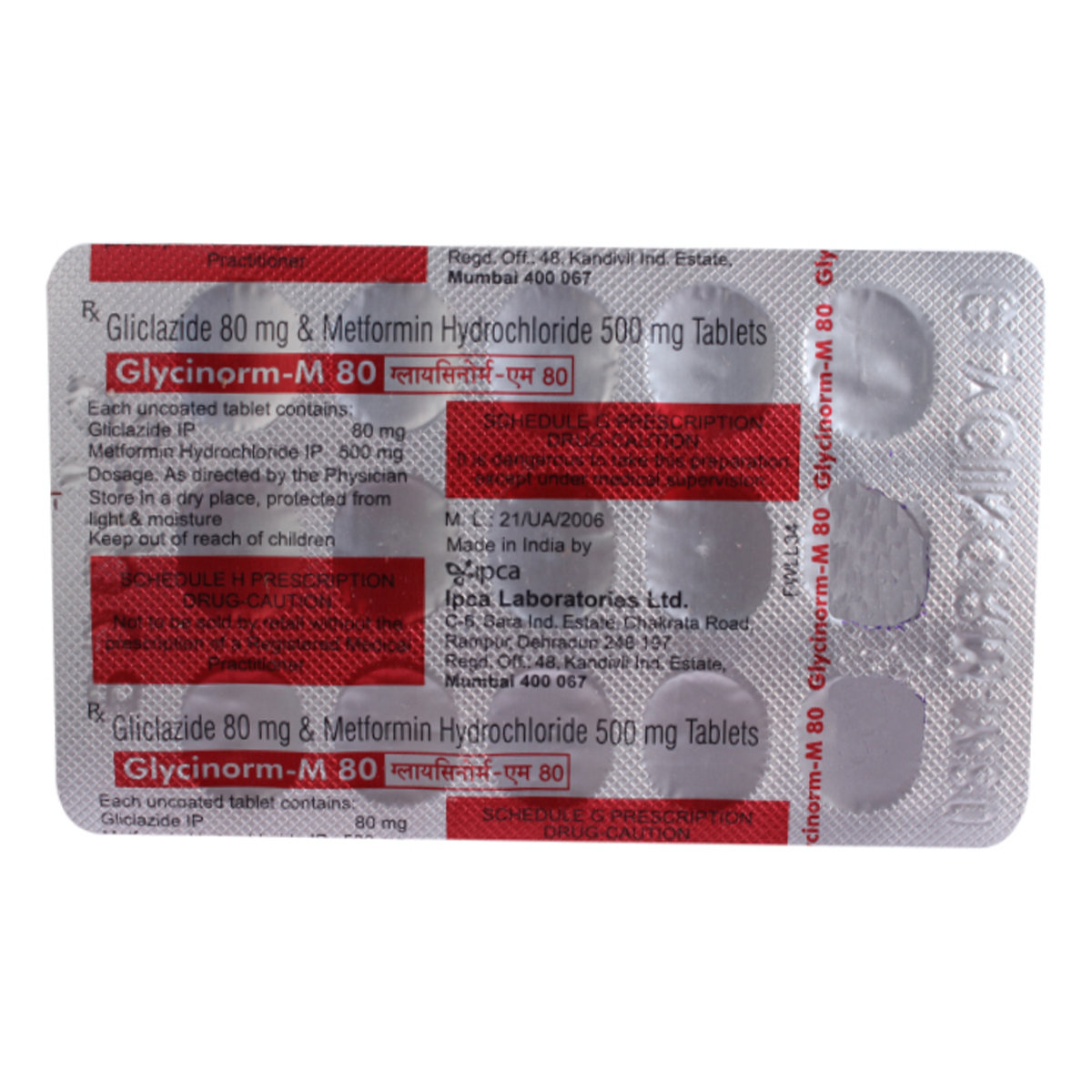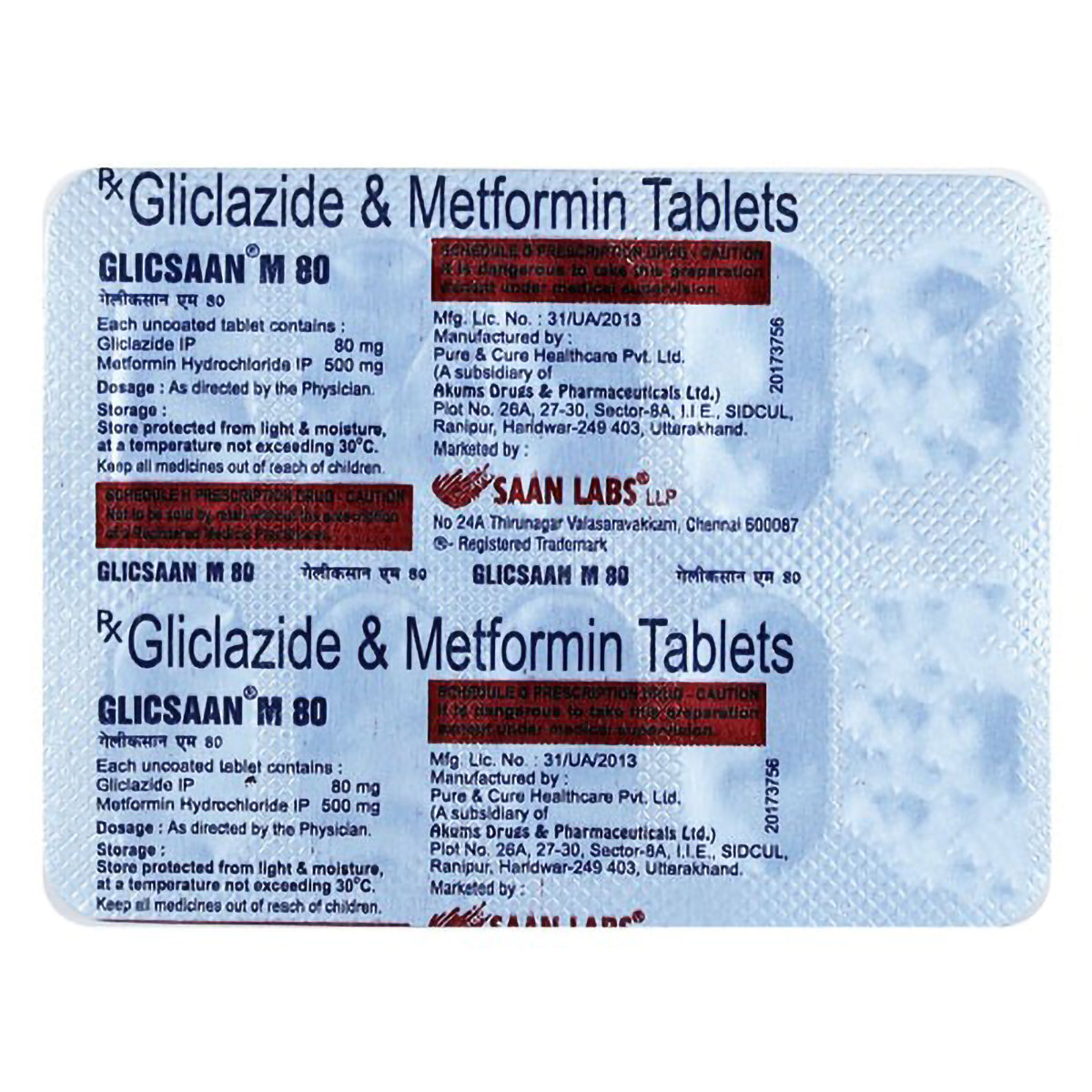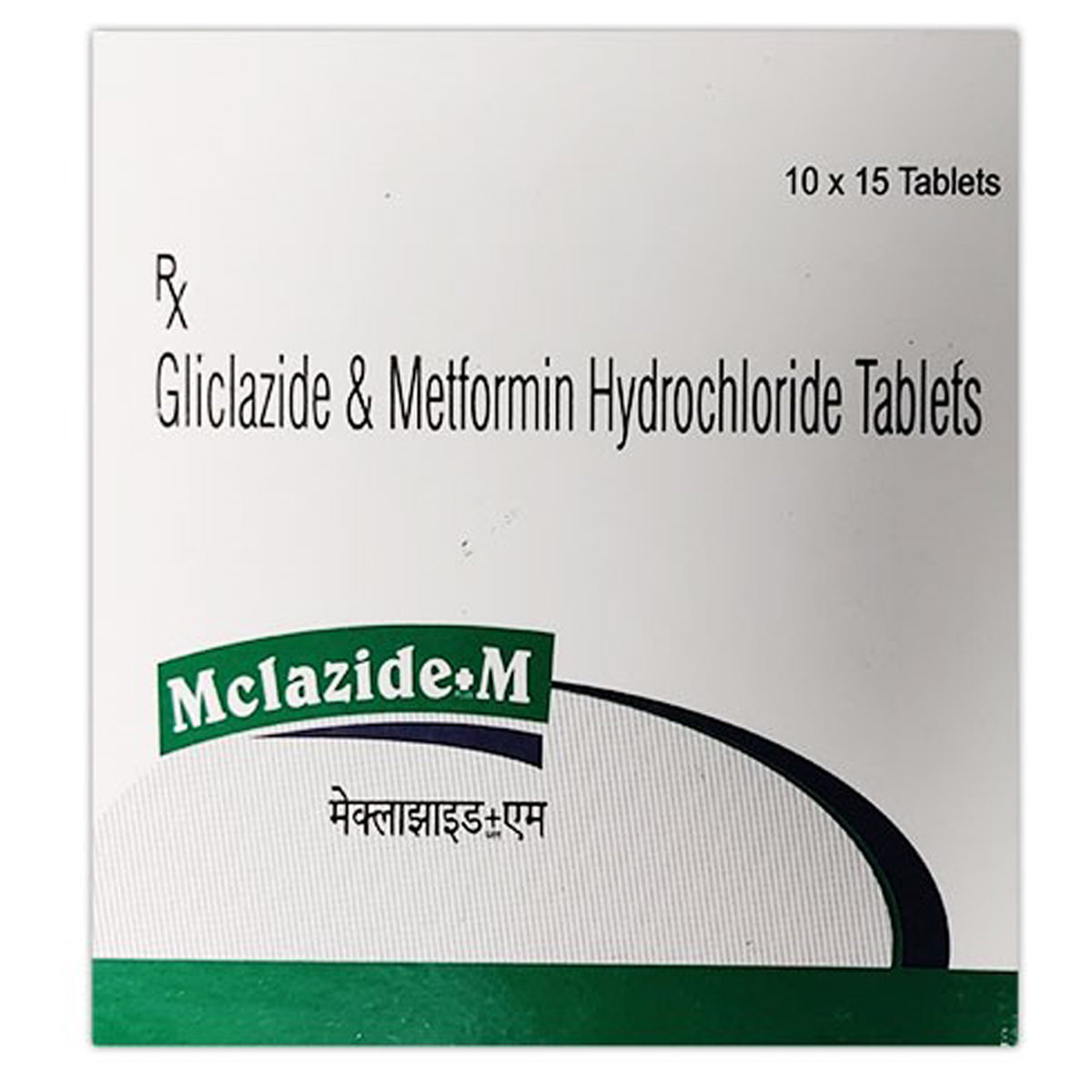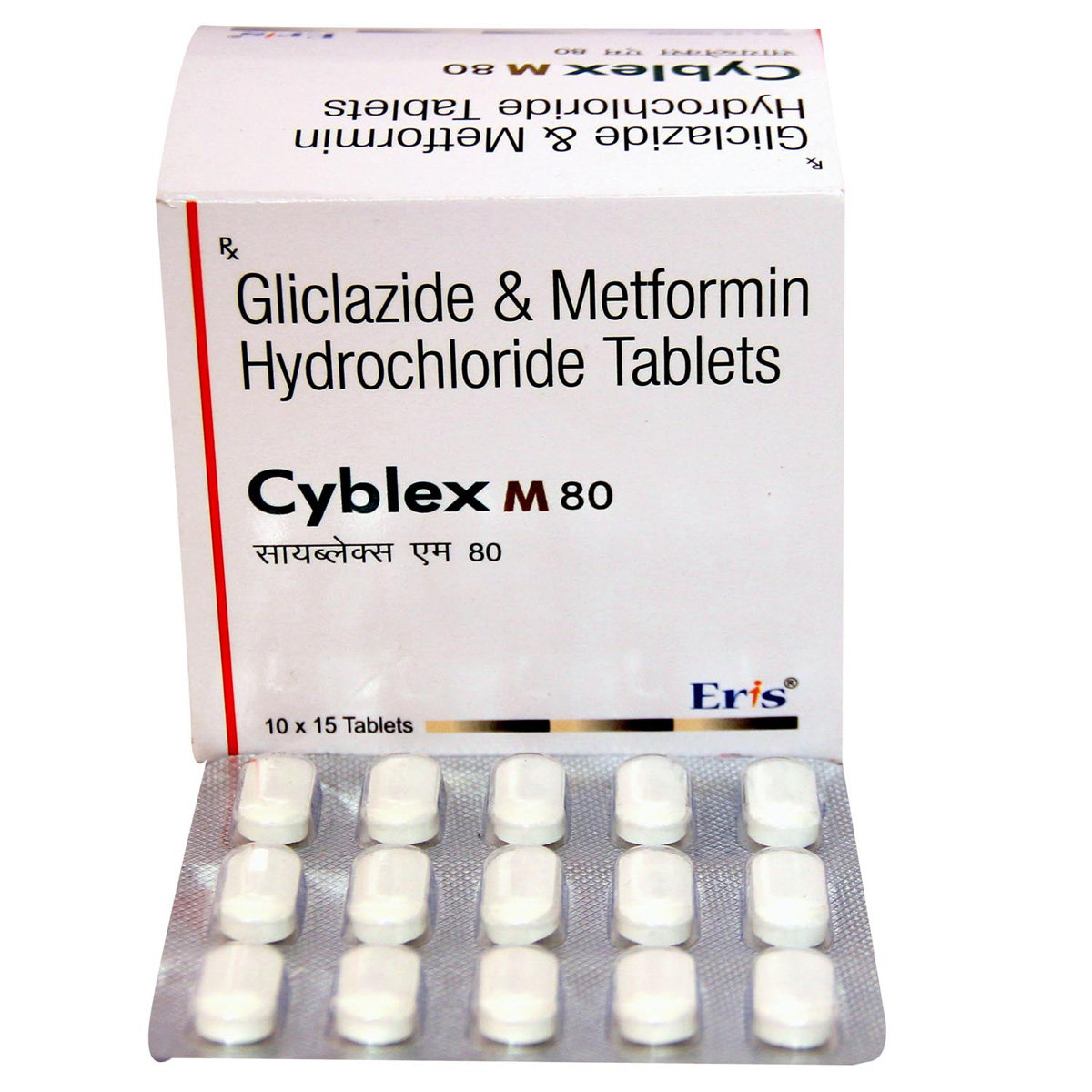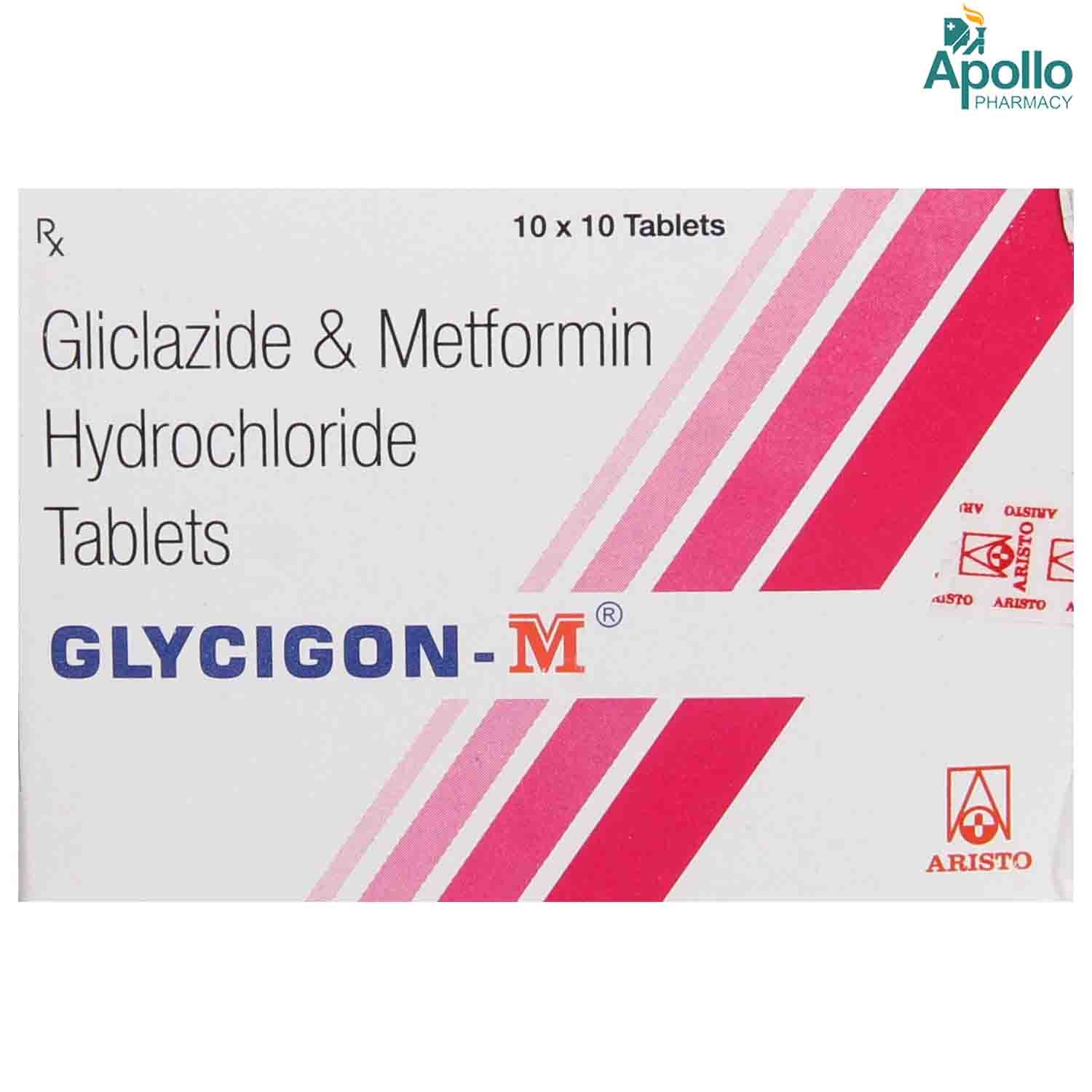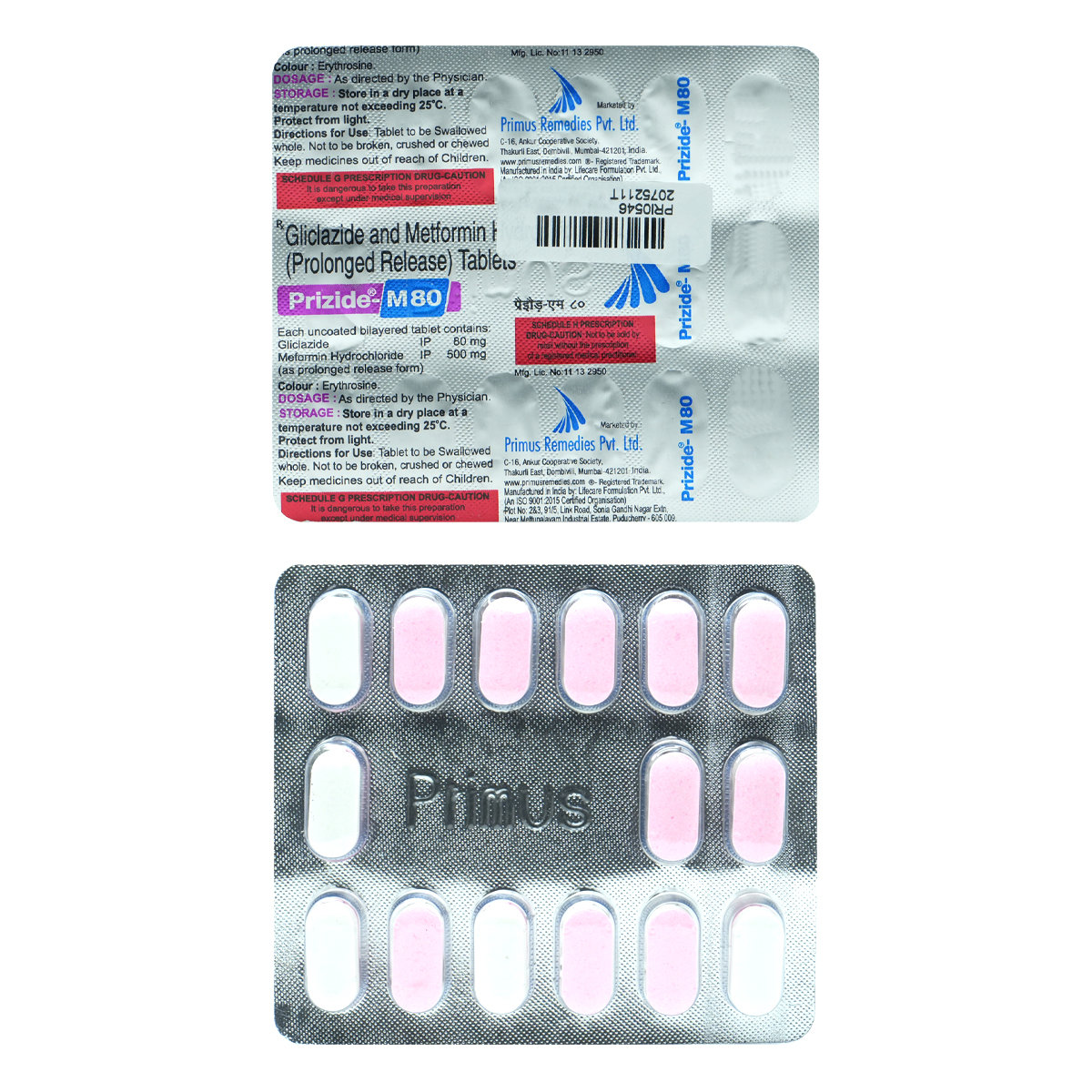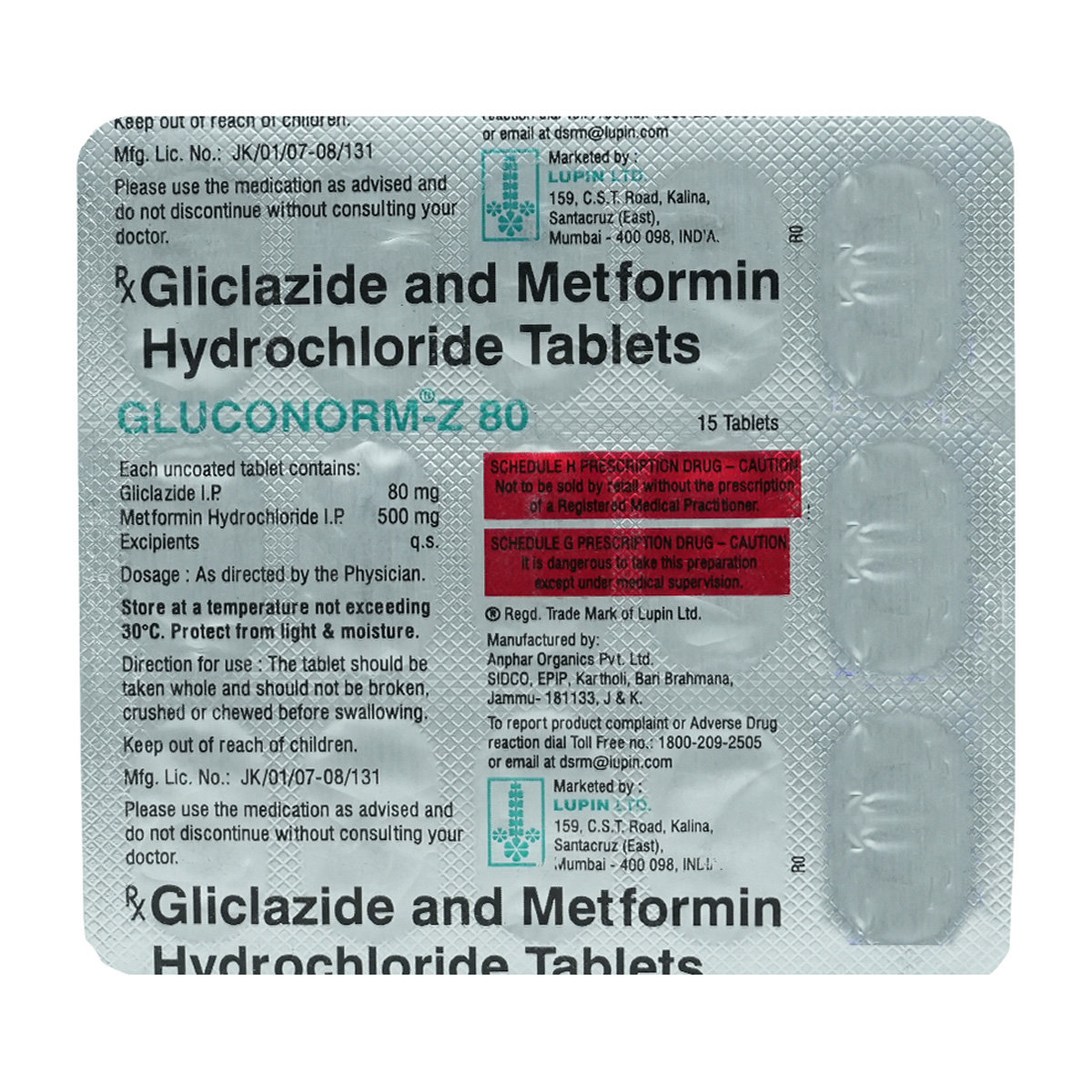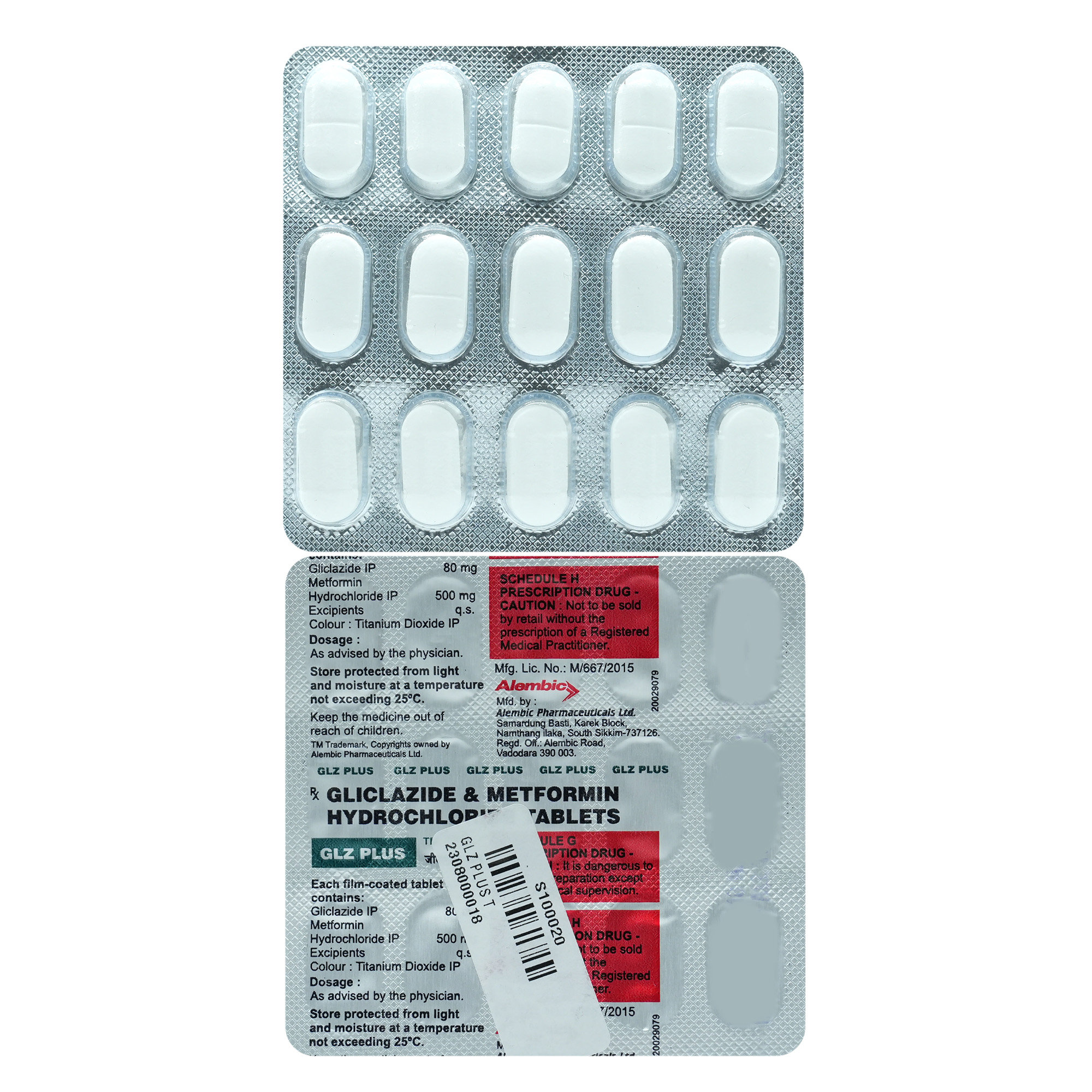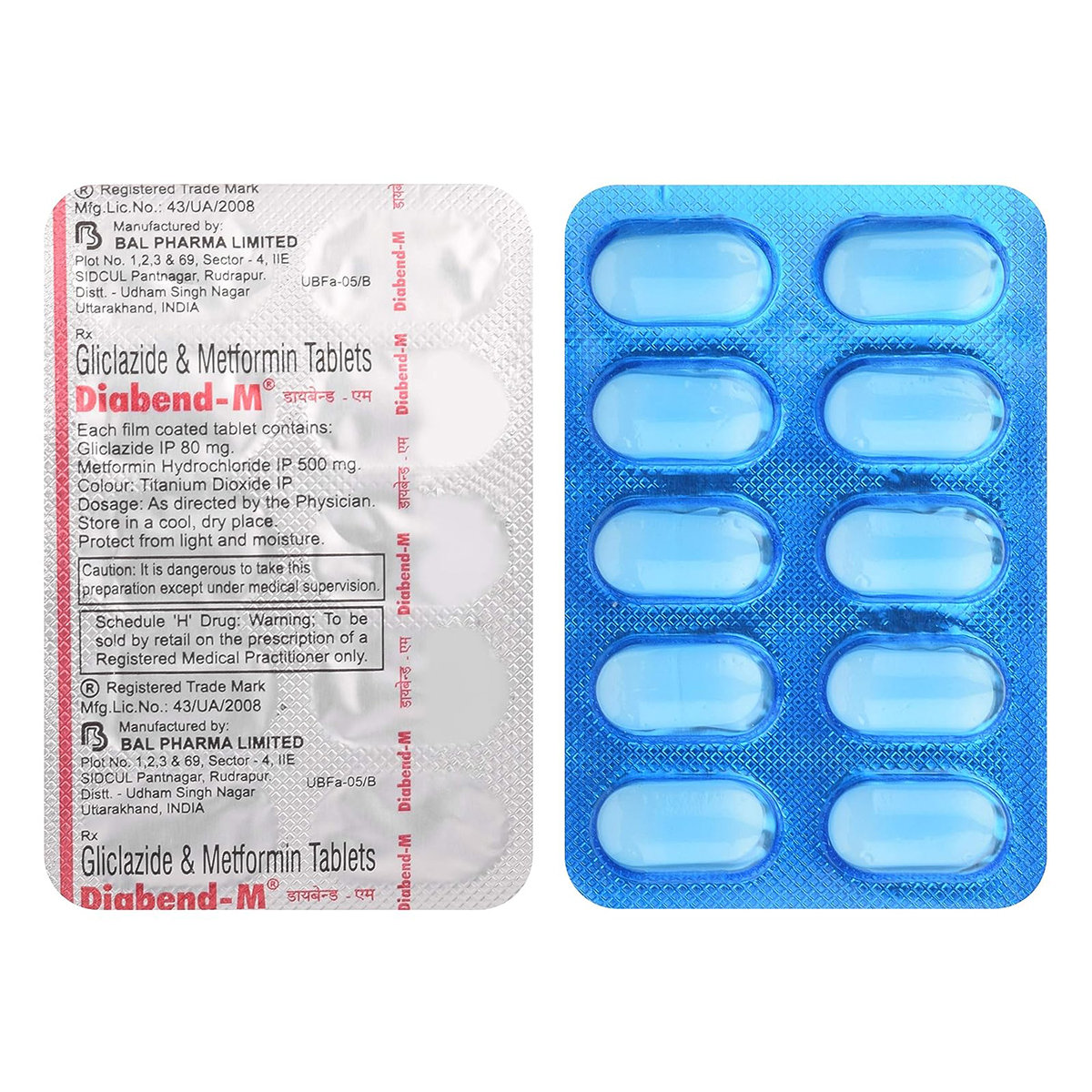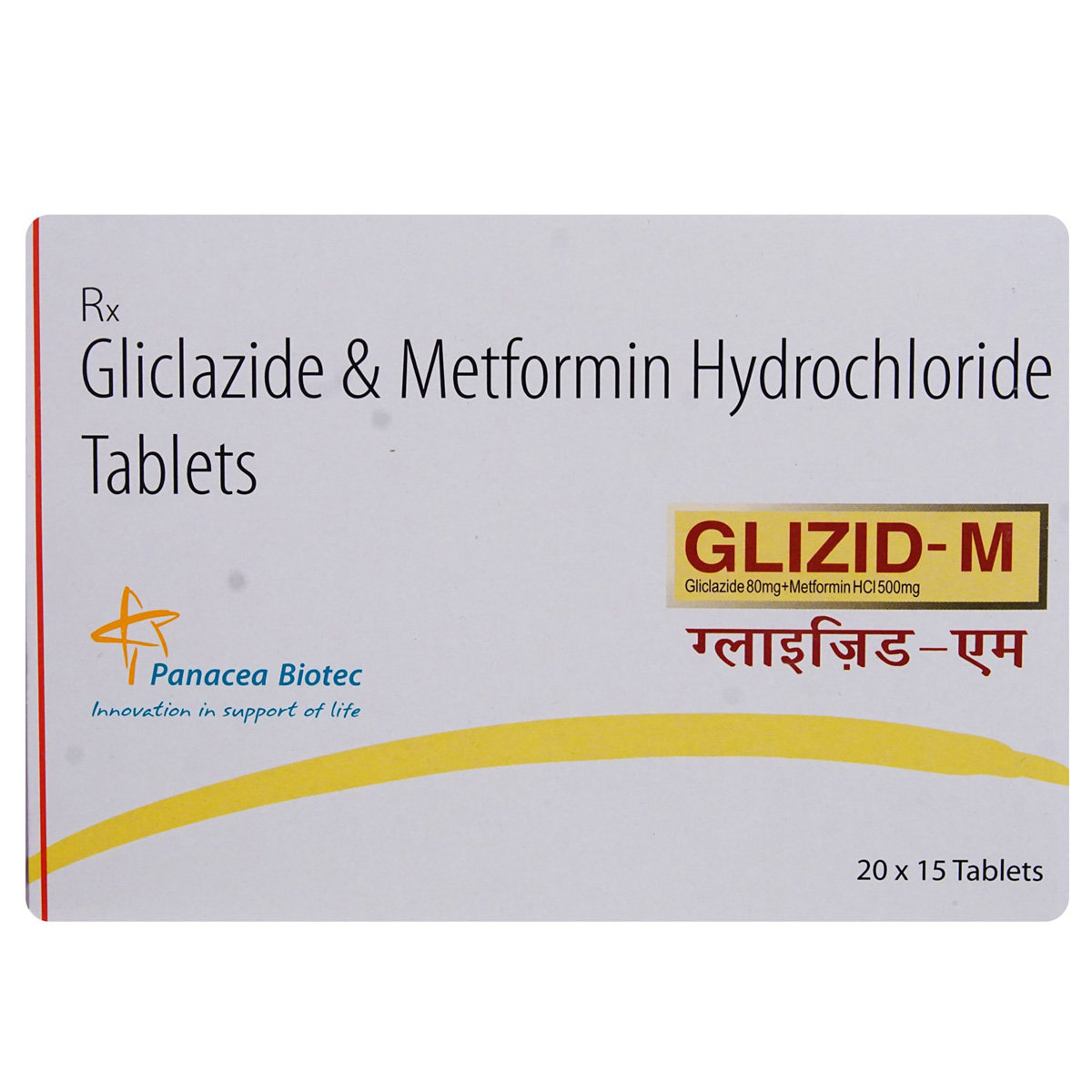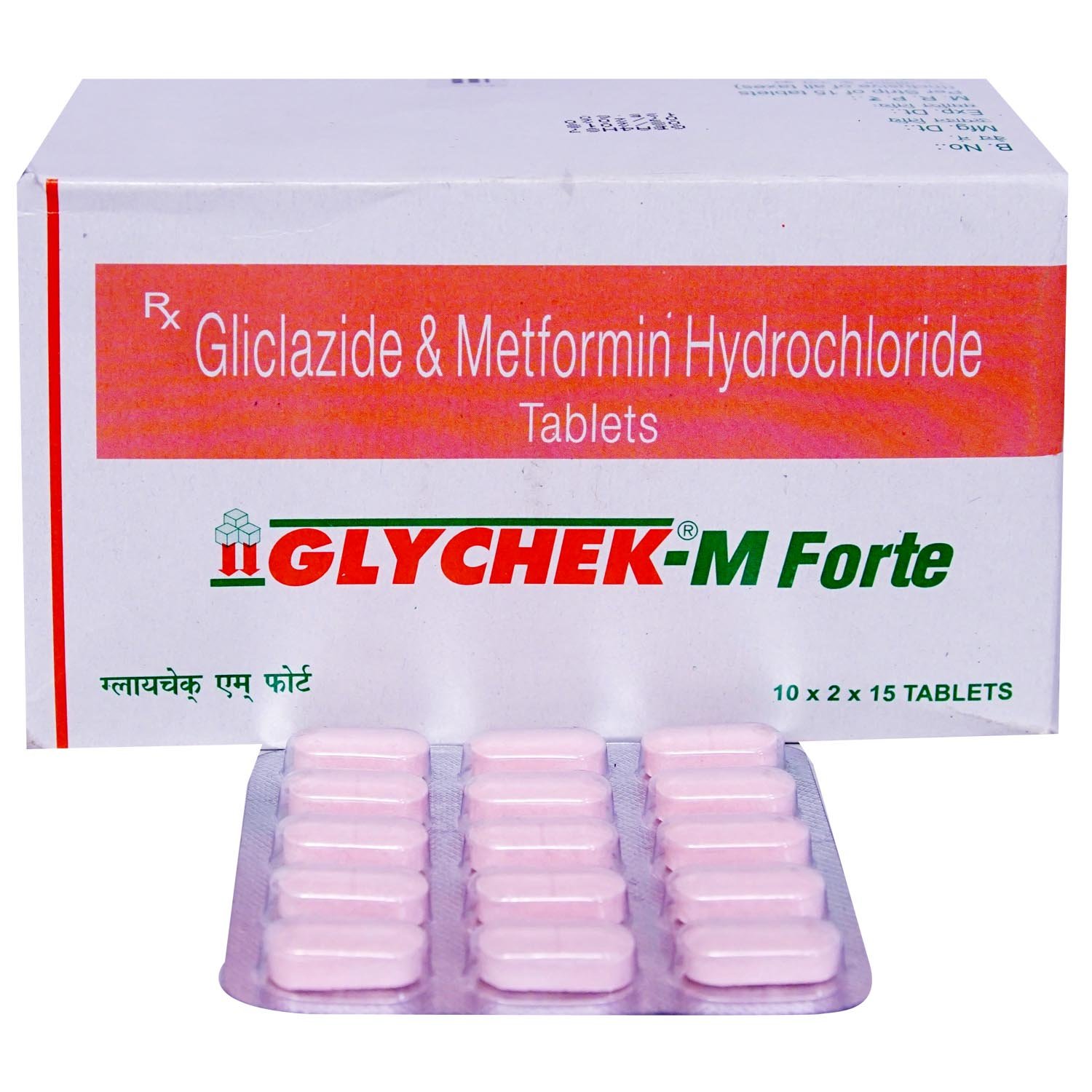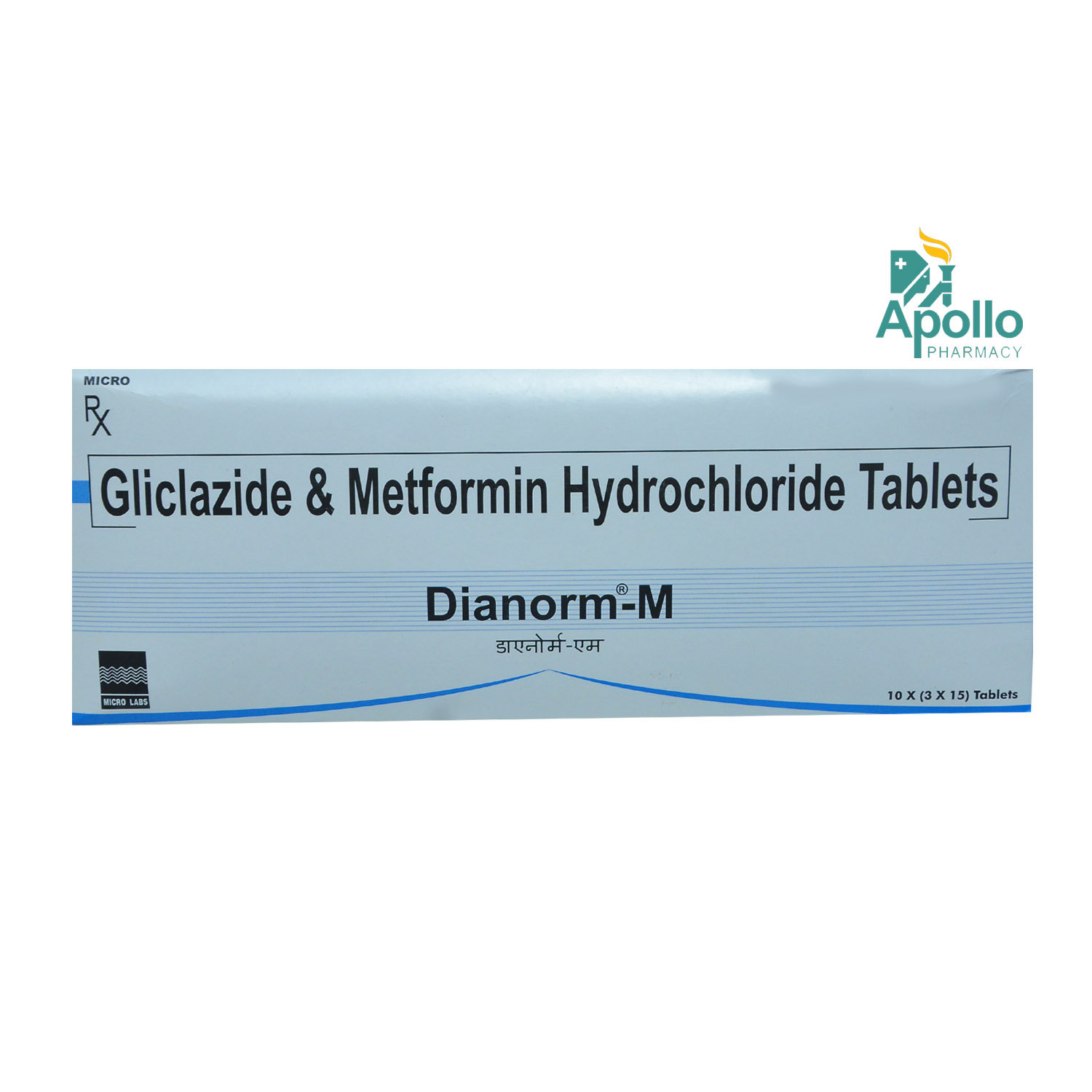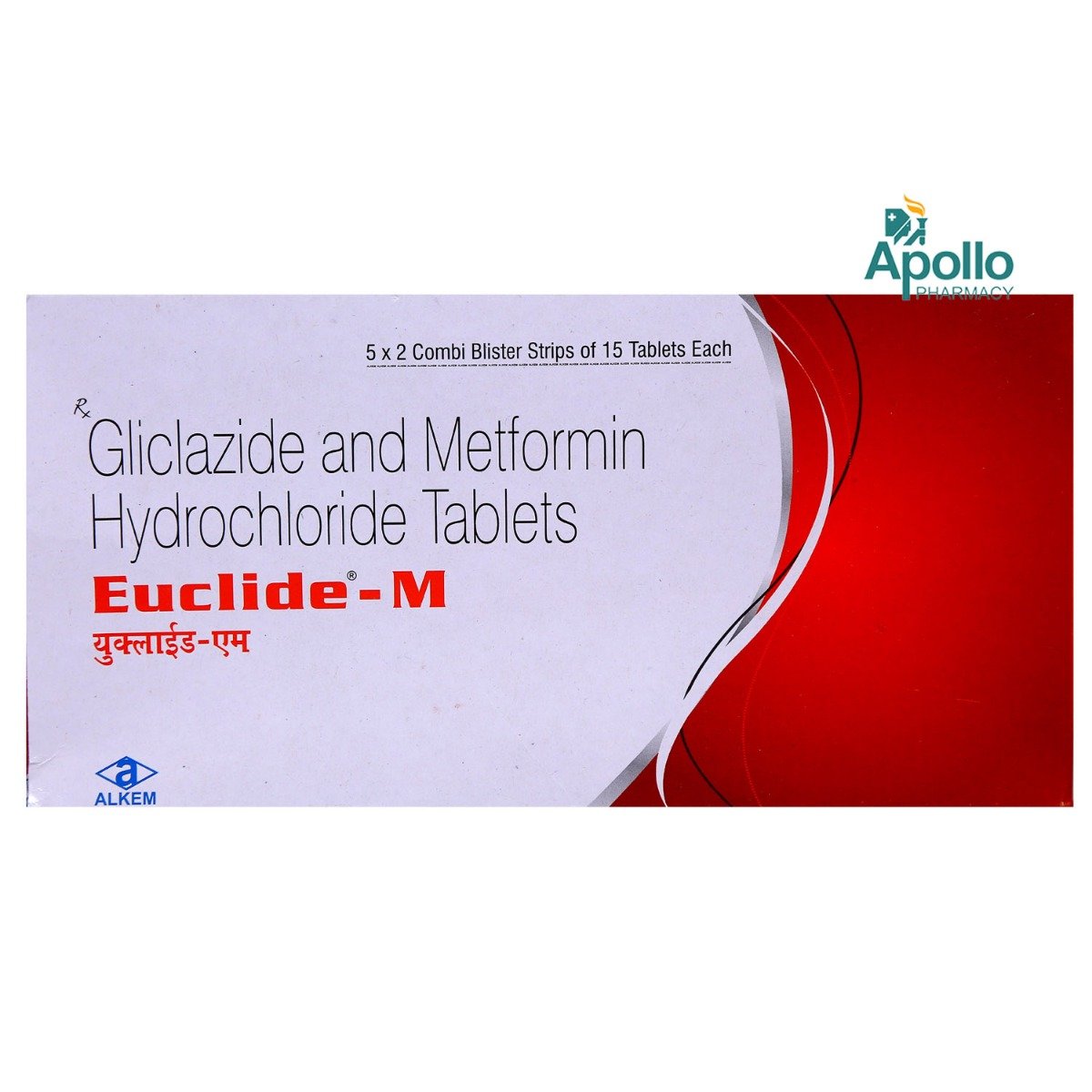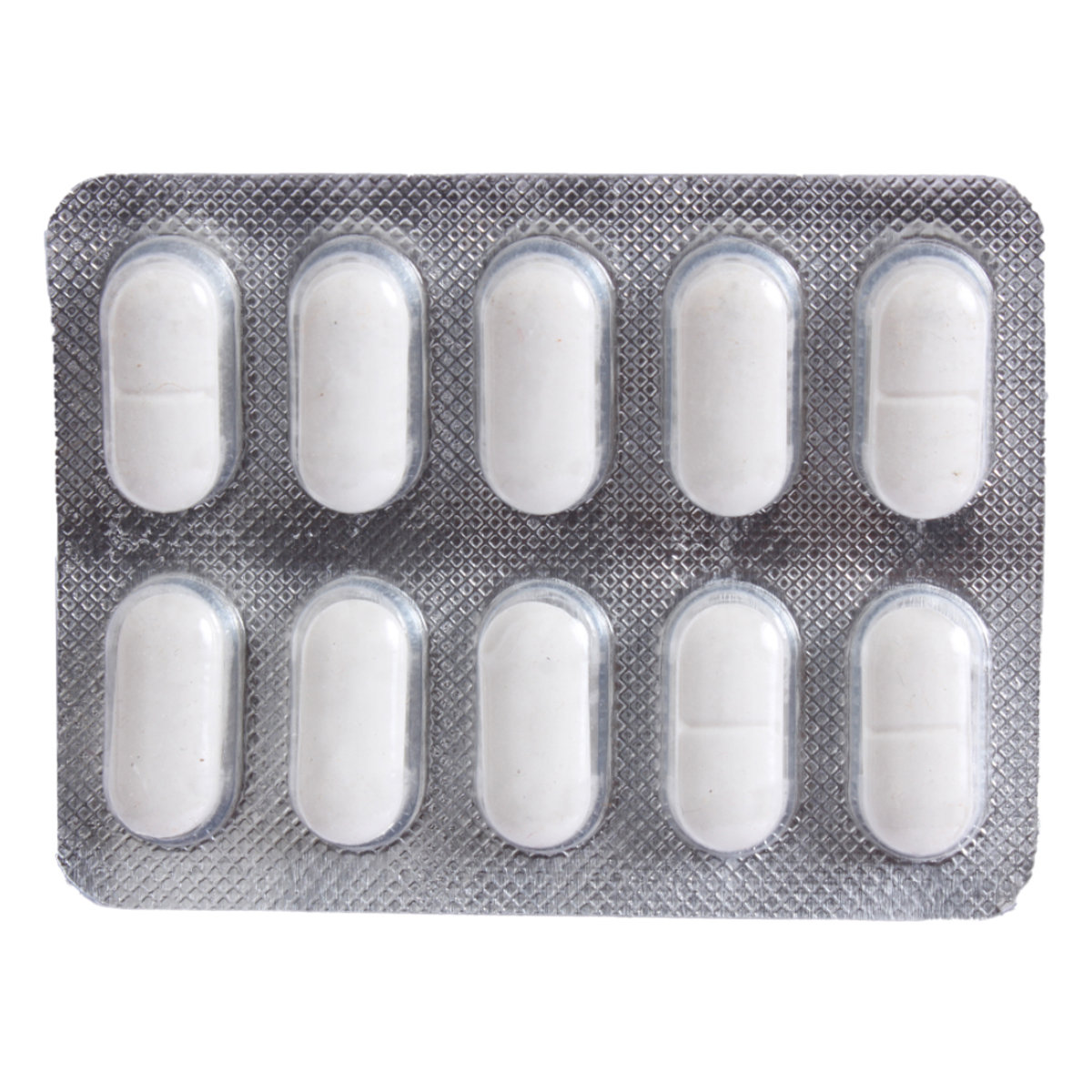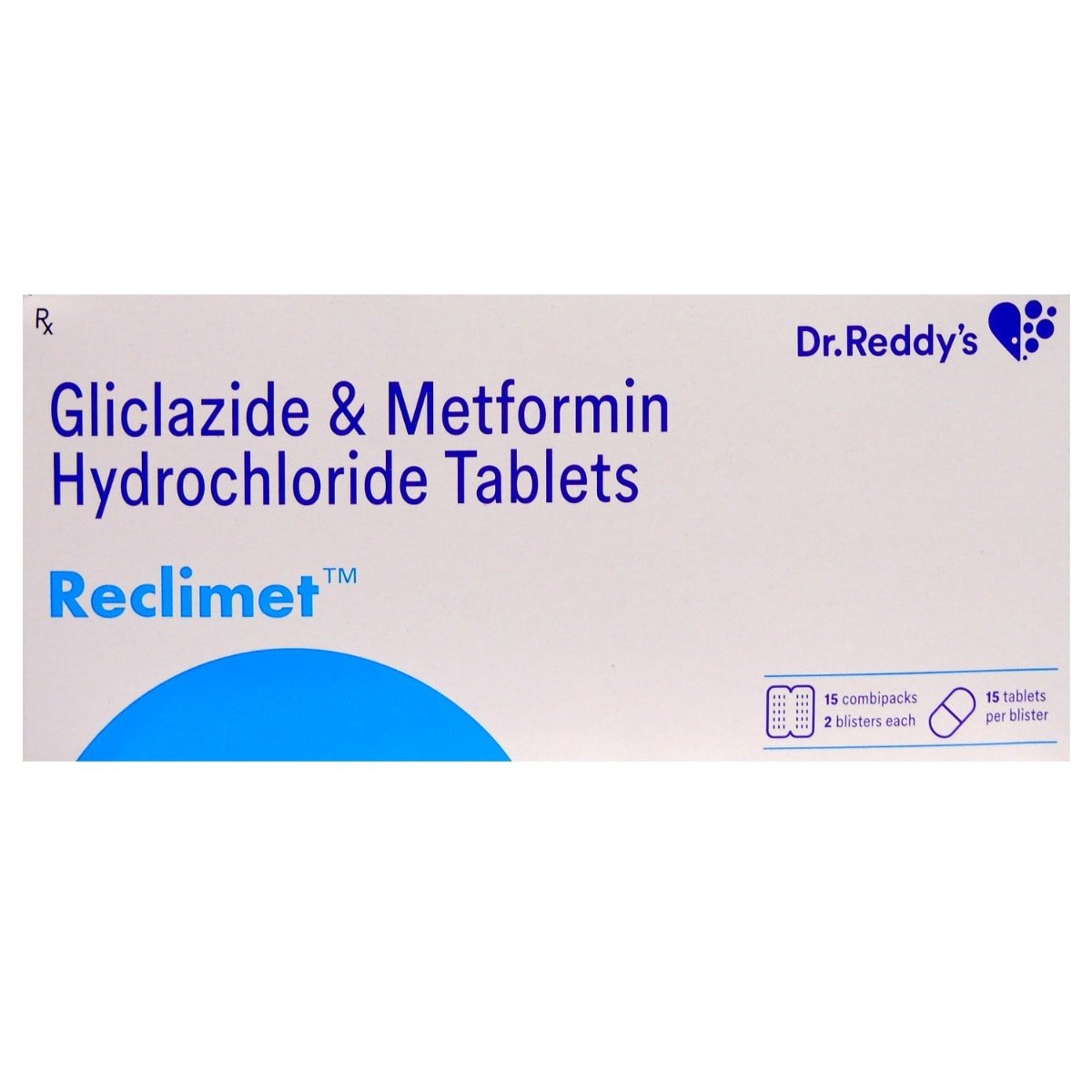Glycinorm-M 80 Tablet 15's
MRP ₹239.5
(Inclusive of all Taxes)
₹35.9 Cashback (15%)
Selected Pack Size:15
15 ₹215.6
(₹14.37 per unit)
In Stock
10 ₹147.2
(₹14.72 per unit)
In Stock
Provide Delivery Location
Online payment accepted
 Prescription drug
Prescription drugWhats That
Composition :
Manufacturer/Marketer :
Consume Type :
Expires on or after :
Return Policy :
About Glycinorm-M 80 Tablets
Glycinorm-M 80 Tablets belongs to a class of medicine known as an anti-diabetic. It is primarily used to treat Type 2 diabetes. Type 2 diabetes is a chronic or lifelong condition affecting how your body processes glucose. People with type 2 diabetes either do not produce enough insulin, or if at all the insulin is produced, it is unable to perform its function in the body (insulin resistance). Due to this, the blood glucose level increases and symptoms such as frequent urination, increased thirst and increased hunger start. It can lead to serious complications like skin infection, eye problems (retinopathy), nerve damage (neuropathy), diabetic foot (foot ulcer), kidney disease (nephropathy), high blood pressure, and even stroke.
Glycinorm-M 80 Tablets is a combination of two anti-diabetic drugs: Gliclazide and Metformin. Gliclazide is a 'sulfonylurea' which acts by increasing the amount of insulin released by the pancreas. On the other hand, Metformin, which is a 'biguanide', works by lowering the glucose production in the liver, delaying glucose absorption from the intestines and increasing the body's response to insulin. In a nutshell, the two medicines prevent blood glucose levels from rising to very high levels, thus keeping your Diabetes under control. Glycinorm-M 80 Tablets act together to keep your blood sugar levels under check. The strict control of blood sugars is especially important to mention the many disabling side effects of Diabetes. Glycinorm-M 80 Tablets shows optimum effects when taken along with healthy lifestyle changes like weight loss, regular exercise, a healthy diet etc.
Glycinorm-M 80 Tablets should be taken with food to avoid an upset stomach. Glycinorm-M 80 Tablets should be taken at the same time of the day each time for best results. For better advice, your doctor will decide what dose should be taken, which can change quickly depending on your condition. A common side effect of Glycinorm-M 80 Tablets is hypoglycaemia (low blood glucose levels) characterized by dizziness, sweating, palpitations, hunger pangs, dry mouth and skin etc. So, to avoid hypoglycaemia, you should not miss meals and also should carry some form of sugar along with you. Other side effects include taste change, nausea, diarrhoea, stomach pain, headache, and upper respiratory symptoms.
You should not take the Glycinorm-M 80 Tablets if you have diabetic ketoacidosis (excess acids in your blood). Glycinorm-M 80 Tablets should not be stopped even if you feel better without consulting your doctor as sugar levels change. If you stop taking Glycinorm-M 80 Tablets abruptly, it may increase your sugar levels which could further increase the risk of eyesight loss (retinopathy), kidney (nephropathy) and nerve damage (neuropathy). Glycinorm-M 80 Tablets should not be taken if you have type 1 diabetes mellitus or severe kidney or liver disease. Tell your doctor before prescribing the Glycinorm-M 80 Tablets if you are a pregnant woman or nursing mother.
Uses of Glycinorm-M 80 Tablets
Directions for Use
Key Benefits
Glycinorm-M 80 Tablets plays a vital role in decreasing the blood sugar level in the body as metformin lowers glucose production in the liver, whereas the other increases the amount of insulin released by the pancreas. Glycinorm-M 80 Tablets also helps to prevent serious complications of diabetes such as kidney damage (diabetic nephropathy), blindness (diabetic retinopathy), loss of sensation in your hands and feet (diabetic neuropathy) or even loss of the foot. Glycinorm-M 80 Tablets also helps to reduce your chance of having a heart attack or stroke. Being a combination of two drugs, it reduces the need to take multiple pills and hence makes it easier to remember to take the drugs.
Storage
Drug Warnings
Some diabetic patients taking Glycinorm-M 80 Tablets may develop a rare but serious condition called lactic acidosis. In this condition, too much lactic acid is accumulated in the blood. So, your liver and kidney's proper functioning is required to eliminate excess lactic acid from the blood. You should not take Glycinorm-M 80 Tablets if you have kidney disease, as measured by a blood test. Glycinorm-M 80 Tablets may lower vitamin B12 levels, so try to have blood tests annual blood and vitamin. Glycinorm-M 80 Tablets , when used with or without insulin, tends to lower the blood sugar level extremely. So, the doctor may reduce the dose of insulin. Glycinorm-M 80 Tablets may lower your thyroid-stimulating hormone (TSH), so an annual check-up of TSH is suggested.
Drug-Drug Interactions
Drug-Drug Interactions
Login/Sign Up
Co-administration of Glycinorm-M 80 Tablet and Iodamide can increase the risk of lactic acidosis (when the body produces too much lactic acid).
How to manage the interaction:
Taking Glycinorm-M 80 Tablet with Iodamide is generally avoided as it can result in an interaction, please consult your doctor before taking it.
Co-administration of Glycinorm-M 80 Tablet and Iobenzamic acid can increase the risk of lactic acidosis (when the body produces too much lactic acid).
How to manage the interaction:
Taking Glycinorm-M 80 Tablet with Iobenzamic acid is generally avoided as it can result in an interaction, please consult your doctor before taking it.
Co-administration of Glycinorm-M 80 Tablet with Metrizamide together can cause the risk of lactic acidosis (when the body produces too much lactic acid ).
How to manage the interaction:
Taking Glycinorm-M 80 Tablet with Metrizamide is generally avoided as it can possibly result in an interaction, it can be taken if a doctor has advised it. However, if you experience headaches, muscle cramps or pain, contact a doctor immediately. Do not discontinue any medications without consulting a doctor.
Co-administration of Iopydol with Glycinorm-M 80 Tablet can increase the risk of side effects.
How to manage the interaction:
Taking Glycinorm-M 80 Tablet with Iopydol is not recommended, please consult your doctor before taking it.
Co-administration of Glycinorm-M 80 Tablet and Iocarmic acid can increase the risk of lactic acidosis (when the body produces too much lactic acid).
How to manage the interaction:
Taking Glycinorm-M 80 Tablet with Iocarmic acid is generally avoided as it can result in an interaction. please consult your doctor before taking it.
Co-administration of Iodixanol with Glycinorm-M 80 Tablet can increase the risk of side effects.
How to manage the interaction:
Taking Glycinorm-M 80 Tablet with Iodixanol is not recommended, please consult a doctor before taking it. Do not discontinue the medications without consulting a doctor.
Co-administration of Glycinorm-M 80 Tablet and Iobitridol can increase the risk of lactic acidosis (when the body produces too much lactic acid).
How to manage the interaction:
Taking Glycinorm-M 80 Tablet with Iobitridol is generally avoided as it can result in an interaction. Please consult your doctor before taking it.
Co-administration of Ioversol with Glycinorm-M 80 Tablet can increase the risk of side effects.
How to manage the interaction:
Taking Glycinorm-M 80 Tablet with Ioversol is not recommended, please consult your doctor before taking it.
Co-administration of Iopamidol with Glycinorm-M 80 Tablet can increase the risk of side effects.
How to manage the interaction:
Taking Glycinorm-M 80 Tablet with Iopamidol is not recommended, please consult a doctor before taking it. Do not discontinue the medications without consulting a doctor.
Co-administration of Iotroxic acid with Glycinorm-M 80 Tablet can increase the risk of side effects.
How to manage the interaction:
Taking Glycinorm-M 80 Tablet with Iotroxic acid is not recommended, please consult your doctor before taking it.
Drug-Food Interactions
Drug-Food Interactions
Login/Sign Up
Diet & Lifestyle Advise
- Fill your half plate with starchy veggies, a quarter with proteins, and a quarter with whole grain.
- Eat at regular intervals. Do not take the long gap between a meal or snack.
- Monitor your blood sugar level regularly, especially when there are a lot of fluctuations.
- Invest at least 150 minutes of moderate-intensity physical activity and 15 minutes of high-intensity exercise weekly.
- Lose weight gradually to achieve a healthy body mass index (18.5 to 24.9).
- Replace refined carbohydrates-containing foods with whole grain foods and increase intake of fruits, veggies, and other fibre-enriched foods.
- Reduce saturated fat intake (or hidden fats) in food like chips, crisps, pastries, biscuits and samosas. Choose omega-3 fatty acid-containing oils for daily cooking. For frying, you may use palm oil, mustard oil, groundnut oil, rice bran oil, and safflower oil.
- Do not take stress as it may elevate your blood sugar level. You may adopt stress management techniques like mindfulness, yoga or meditation to control pressure related to blood sugar changes.
- Opt for low-fat dairy products (low-fat yoghurt, fat-free milk and cheese etc.).
- Keep your blood pressure as normal (120/80) as possible as it reduces the risk of cardiovascular diseases in diabetes patients.
Side Effects of Glycinorm-M 80 Tablets
- Hypoglycaemia (low blood glucose level)
- Dizziness
- Sweating
- Palpitations
- Hunger pangs
- Dry mouth
- Dry skin
- Taste change
- Nausea
- Diarrhoea
- Stomach pain
- Headache
Habit Forming
Therapeutic Class
All Substitutes & Brand Comparisons
RX
Glicsaan M 80mg/500mg Tablet 10's
Saan Labs
₹69.5
(₹6.26 per unit)
56% CHEAPERRX
Glykind-M Tablet 10's
Mankind Pharma Pvt Ltd
₹84
(₹7.57 per unit)
47% CHEAPERRX
Mclazide Plus M Tablet 15's
Mitoch Pharma Pvt Ltd
₹130
(₹7.8 per unit)
45% CHEAPER
Author Details
We provide you with authentic, trustworthy and relevant information
Drug-Diseases Interactions
Drug-Diseases Interactions
Login/Sign Up
FAQs
Drug-Drug Interactions Checker List
- INSULIN
- HYDROCHLOROTHIAZIDE
- AMLODIPINE
- FUROSEMIDE
- DIGOXIN
- METOPROLOL
- PREDNISOLONE
Special Advise
- Keep taking the drug even if you think your blood sugar levels are under control. If you miss a dose, do not take a larger dose; consult your treating physician for advice.
- Take short, frequent meals, and avoid prolonged fasting when taking this drug. Beware of hypoglycaemia symptoms, including sweating, dizziness, palpitations, shivering, intense thirst, dry mouth, dry skin, frequent urination etc. Whenever you experience the symptoms mentioned above, immediately consume 5-6 candies or 3 glucose biscuits or 3 teaspoons of honey/sugar and get in touch with your physician. Make sure to carry these with you at all times, especially for long travels.
- Before the doctor prescribes this medicine, it is always better that your physician knows about any underlying conditions like kidney or liver disease, prior heart attack, alcohol intake, etc..
- Avoid drinking alcohol while on this drug as it increases the risk of hypoglycaemia (decrease in blood sugar which might be fatal in some cases) and lactic acidosis (when the lactic acid increases in the body, which impacts the functioning of various organs in the body).
- Try to quit smoking and reduce your intake of carbohydrate-rich food like potatoes, rice, mangoes, bread, sugar etc.
- Remember, lifestyle modifications are the most important step in controlling blood sugar levels.
Disease/Condition Glossary
Diabetes Mellitus type 2 is a condition in which either the body stops producing enough insulin (the hormone which helps to decrease sugar levels in the blood) or there is resistance to the action of insulin. As a result, excessive insulin is produced but it fails to act on the organs of the body. Symptoms of type 2 diabetes include feeling exhausted all time, feeling thirsty, having blurry vision, and urge to urinate (pee) more often. Complications of type 2 diabetes include skin infection, eye problems (retinopathy), nerve damage (neuropathy), delayed wound healing, diabetic foot (foot ulcer), kidney disease (nephropathy), high blood pressure, and even stroke. Both low and high blood sugar levels can be dangerous and should be treated as soon as possible. Your H1bA1C below 5.7% is normal, 5.7-6.4% confirms the prediabetes stage, and 6.5% or greater states diabetes condition.

Have a query?
Alcohol
Safe if prescribed
You are recommended not to consume alcohol along with Glycinorm-M 80 Tablets to avoid unpleasant side-effects.
Pregnancy
Consult your doctor
Please consult the doctor. There are no adequate and well-controlled studies on pregnant women. Your doctor will prescribe only if the benefits outweigh the risks.
Breast Feeding
Consult your doctor
Let your doctor know if you are a nursing mother before taking Glycinorm-M 80 Tablets ; your doctor will decide whether Glycinorm-M 80 Tablets can be taken by breastfeeding mothers or not.
Driving
Safe if prescribed
Glycinorm-M 80 Tablets may cause hypoglycaemia (low blood sugar levels), whose symptoms include unusual sleepiness, shivering, palpitations, sweating etc. This may affect your ability to drive. Use caution while driving or doing anything that requires concentration.
Liver
Consult your doctor
Tell your doctor before prescribing the Glycinorm-M 80 Tablets if you have a history of liver diseases/conditions. Your doctor may adjust your dose depending upon your current liver conditions.
Kidney
Consult your doctor
Tell your doctor before receiving the Glycinorm-M 80 Tablets if you have a history of kidney diseases/conditions. Your doctor may adjust your dose depending upon your current liver conditions.
Children
Safe if prescribed
The safety and efficacy of Glycinorm-M 80 Tablets in children have not been established. Glycinorm-M 80 Tablets is not recommended in children.
Recommended for a 30-day course: 2 Strips

